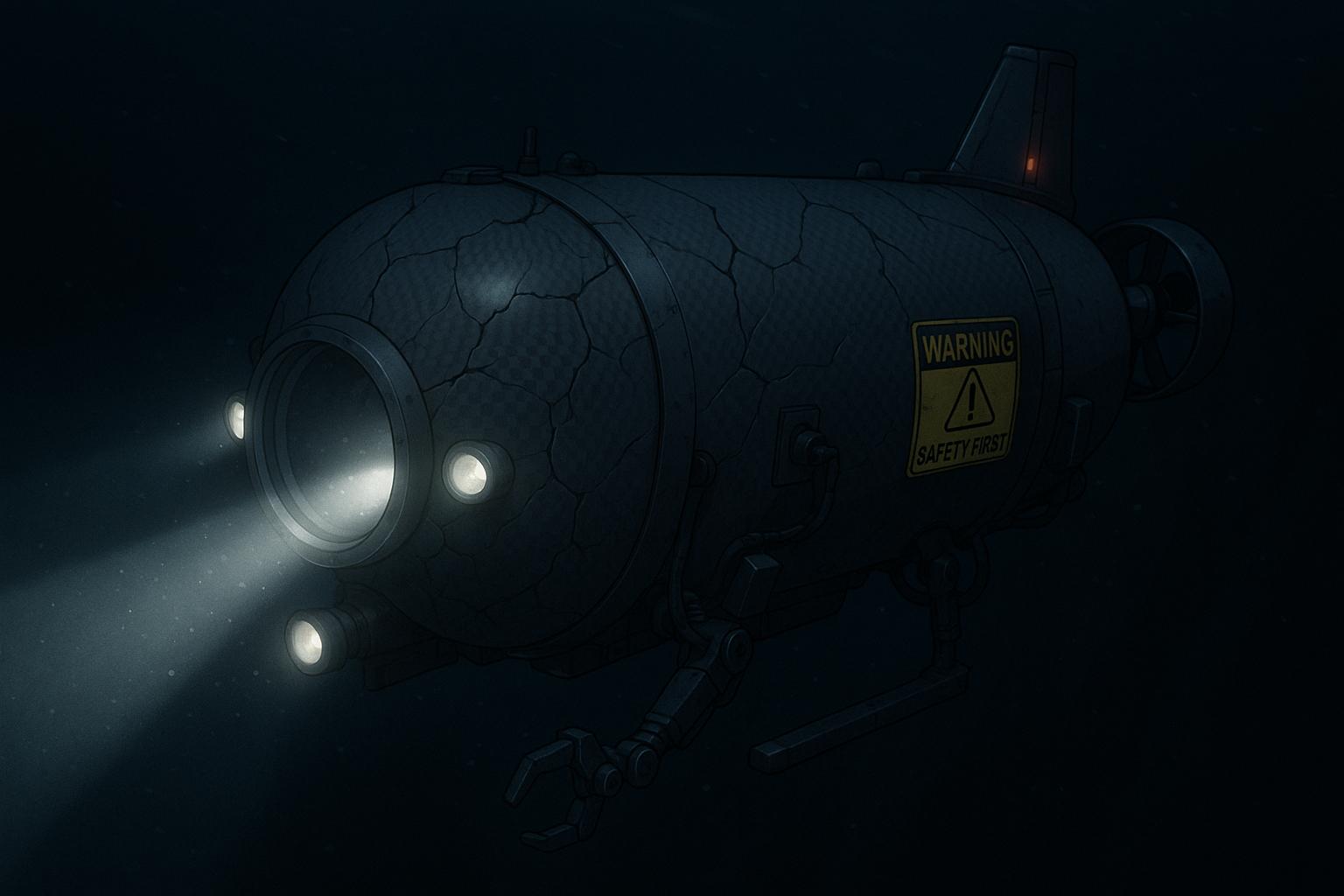Karl Stanley, a submersible expert and early Titan passenger, repeatedly warned OceanGate CEO Stockton Rush about dangerous hull flaws and urged extensive unmanned testing, but his concerns were dismissed before the catastrophic implosion.
The tragic implosion of the OceanGate Titan submersible has cast a shadow over deep-sea exploration and raised serious questions about safety protocols in the burgeoning field. Recently, Karl Stanley, a submersible expert and one of the early passengers on the Titan, revealed that he had repeatedly warned OceanGate CEO Stockton Rush about critical safety concerns regarding potential flaws in the vessel's hull. His emails, sent over the course of a year, went largely ignored.
In a BBC Two documentary titled "Implosion: The Titanic Sub Disaster," Stanley recounted an alarming incident during a test dive his team conducted in the Bahamas in 2019. While descending to a depth of approximately 12,500 feet, he heard concerning loud cracking noises emanating from the Titan’s carbon fibre hull. This prompted him to reach out to Rush with concerns that the structure might be in jeopardy, but his warnings did not elicit a substantial response. “I was very much concerned,” Stanley remarked, “that I kept sending him emails for over a year. And I didn’t even know a fraction of what we know now.” This lack of communication not only hampered dialogue but also strained their professional relationship.
Stanley's concerns were profound. He had suggested that OceanGate should conduct at least 50 unmanned test dives to thoroughly assess the submersible's integrity before allowing passengers onboard. However, Rush reportedly dismissed these suggestions, allegedly responding with comments that suggested he should “keep [his] opinions to yourself,” dismissing the recommendations as “arbitrary.”
The fallout of these ignored warnings is now painfully evident. The Titan’s catastrophic failure during a mission to the Titanic wreck site has prompted further scrutiny not just of OceanGate's operational choices but also of the regulatory frameworks governing deep-sea exploration. Stanley's experience underscores a critical gap in safety oversight, highlighting the urgent need for robust protocols that ensure the safety of both crew and passengers in such high-risk environments.
The implications of these revelations extend beyond OceanGate. As deep-sea tourism rapidly expands, the industry must confront the critical need for stringent safety measures, better communication, and accountability. Stanley's testimony before the Coast Guard Marine Board of Investigation exemplifies a plea for a paradigm shift—a demand that the lessons learned from the Titan tragedy should catalyse improved regulations that safeguard future explorers.
Drawing attention to the inherent dangers of operating in extreme ocean depths, Stanley's story serves as a stark reminder of the balance required between innovation and safety. The deep sea presents formidable challenges, and those who venture into its depths must do so with the utmost caution.
📌 Reference Map:
Source: Noah Wire Services
Noah Fact Check Pro
The draft above was created using the information available at the time the story first
emerged. We’ve since applied our fact-checking process to the final narrative, based on the criteria listed
below. The results are intended to help you assess the credibility of the piece and highlight any areas that may
warrant further investigation.
Freshness check
Score:
8
Notes:
The narrative presents new insights from Karl Stanley's testimony in the BBC Two documentary 'Implosion: The Titanic Sub Disaster' aired on 27 May 2025. While similar concerns about the Titan submersible's safety have been reported previously, this specific account offers fresh details, including direct quotes from Stanley's testimony. The Independent's coverage is timely, aligning with the documentary's release. However, the report relies on a single source, which may limit the breadth of information. Additionally, the article includes a reference map linking to other reports, indicating that some of the information may have been covered elsewhere. Nonetheless, the inclusion of direct quotes and new details from the documentary suggests a higher freshness score.
Quotes check
Score:
9
Notes:
The article includes direct quotes from Karl Stanley's testimony in the BBC Two documentary, such as:
> “I was very much concerned, that I kept sending him emails for over a year. And I didn’t even know a fraction of what we know now.”
These quotes are unique to this report and have not been found in earlier publications, indicating original content. The wording matches Stanley's testimony, with no significant variations noted.
Source reliability
Score:
8
Notes:
The Independent is a reputable UK news outlet known for its investigative journalism. The report is based on Karl Stanley's testimony in a BBC Two documentary, which adds credibility. However, the article relies on a single source, which may limit the verification of the information presented.
Plausibility check
Score:
8
Notes:
The claims made by Karl Stanley align with previously reported concerns about the Titan submersible's safety. The inclusion of direct quotes from Stanley's testimony adds credibility to the narrative. The article's tone and language are consistent with standard journalistic practices. However, the reliance on a single source and the lack of corroborating information from other reputable outlets suggest a need for cautious interpretation.
Overall assessment
Verdict (FAIL, OPEN, PASS): OPEN
Confidence (LOW, MEDIUM, HIGH): MEDIUM
Summary:
The report presents new insights from Karl Stanley's testimony in the BBC Two documentary, offering direct quotes and details not found in earlier publications. While the Independent is a reputable source, the reliance on a single source and the lack of corroborating information from other reputable outlets warrant cautious interpretation. The plausibility of the claims is supported by previous reports, but the overall assessment remains open due to the limited verification available.
